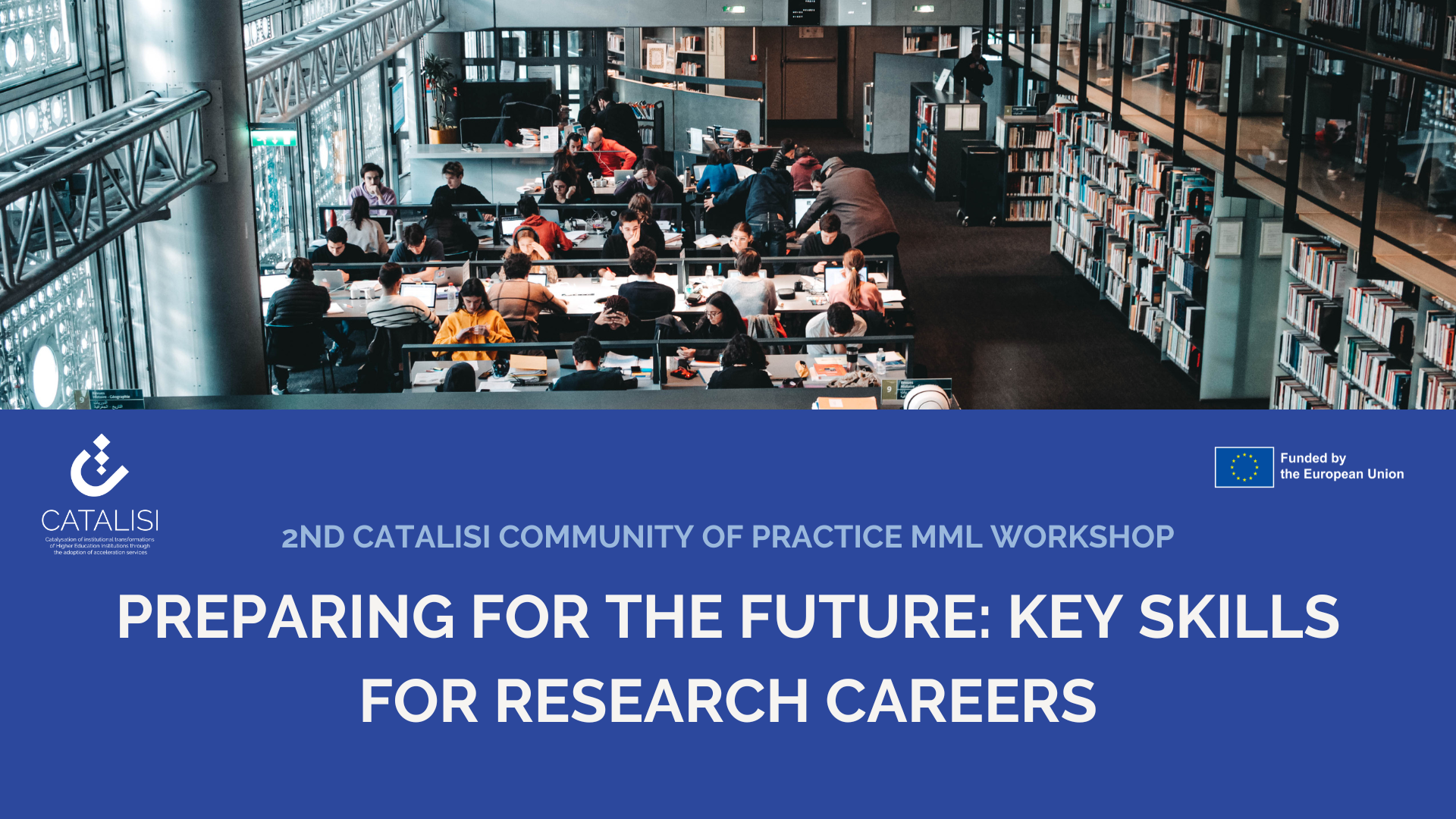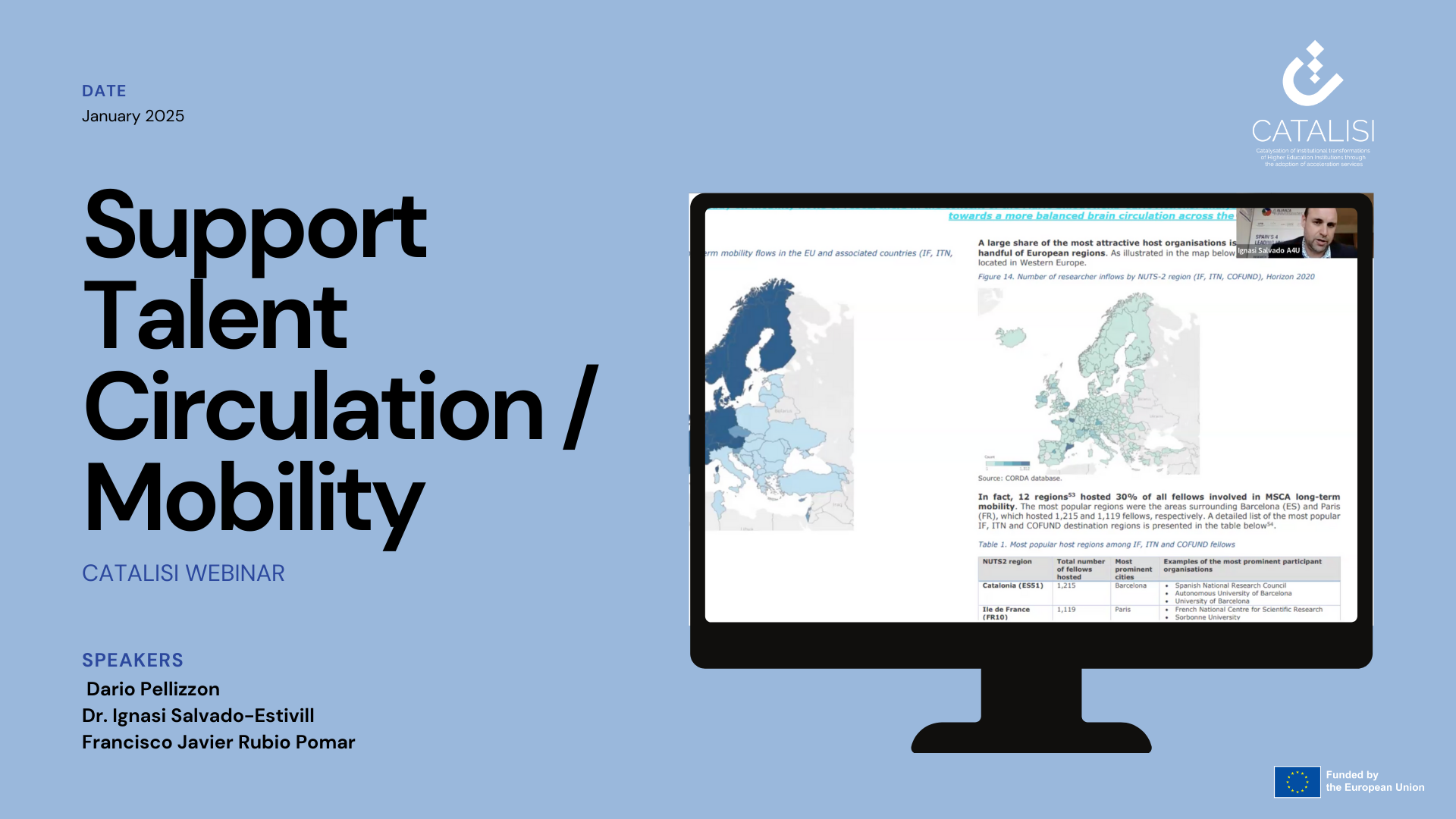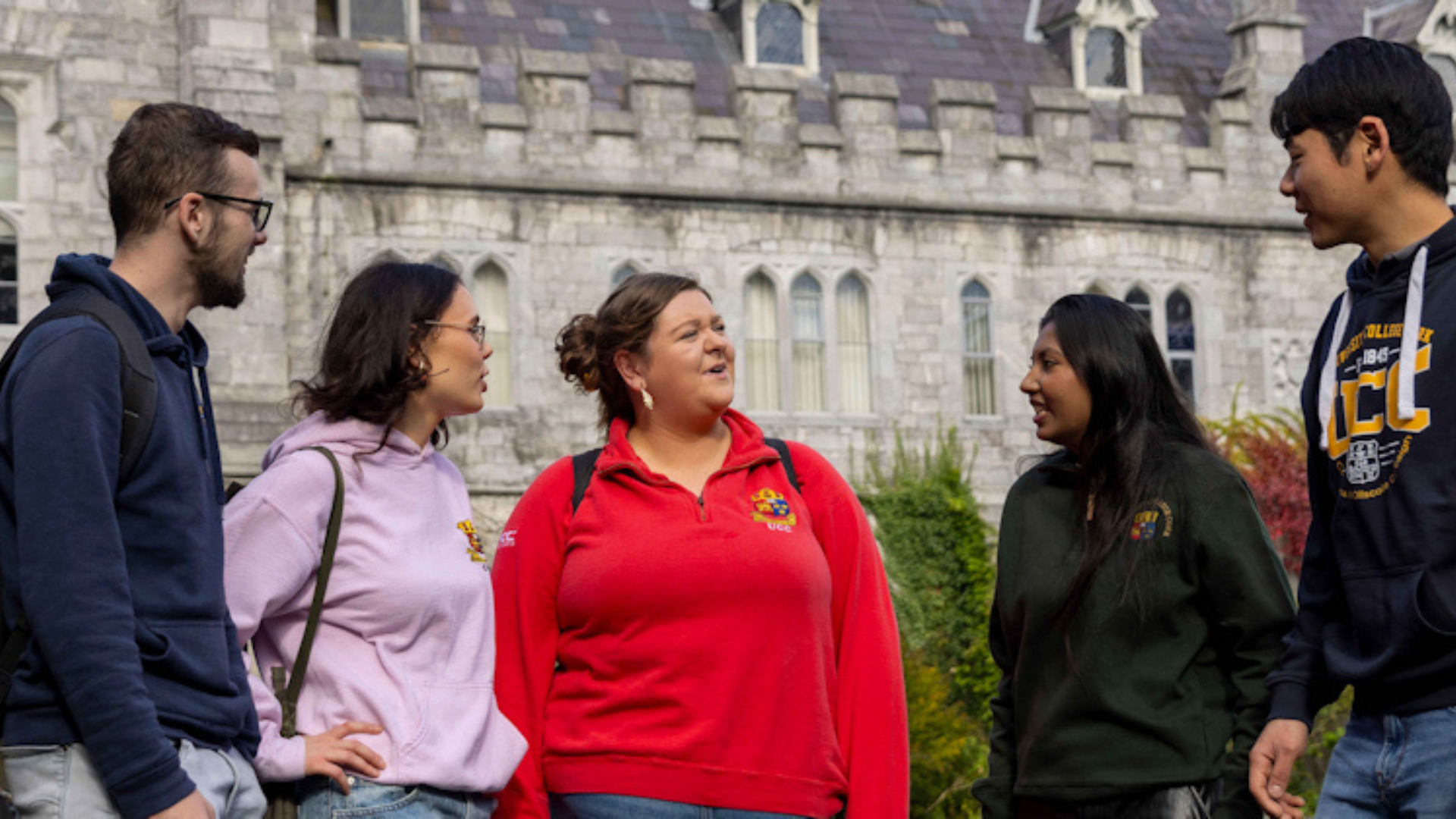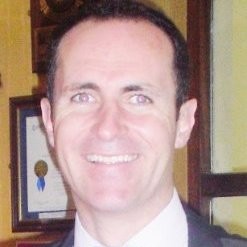On March 5th 2025, the CATALISI project successfully hosted the 2nd Community of Practice Mobilisation and Mutual Learning (MML) workshop, titled “Preparing for the Future: Key Skills for Research Careers”. Organized and facilitated by APRE with the support of EY, the workshop achieved significant results in terms of engagement and knowledge-sharing. In fact, the online event brought together members of the CATALISI Community of Practice together with more than 80 participants from over 50 organizations around Europe, representing mainly academia but also the whole quadruple helix (industry, public sector, civil society).
Starting from the assumption that the labour market landscape is continuing to evolve and that researchers need to enhance their transversal skillset to meet the labour market needs and to improve their competitiveness, the event has been the occasion to share knowledge on the transversal skills most critical and most required by the employers and to reflect on potential actions to help Higher Education Institutions (HEIs) in rethinking their investments in education and training to better prepare researchers for future challenges and opportunities.
Insights from the Predictive Study on Transversal Skills
Following an introduction to the CATALISI project made by the coordinator APRE (Laura Mentini & Stefania Laneve), the workshop featured a presentation by Suhida Dermani, Senior Consultant at EY. Key findings were shared from the recent Predictive Study on Transversal Skills Development, conducted within the CATALISI project. Starting from the competences mapped by the ResearchComp, this study, designed to accelerate universities’ efforts in reshaping researcher training to align with future labour market needs, highlighted both the strengths and gaps in current transversal skills. Through a forecasting analysis, the study identified the key competencies researchers will need over the next five years:
- Digital & AI literacy – Mastery of AI-driven research tools, big data, and automation.
- Entrepreneurial & innovation skills – Competence in securing funding, research commercialization, and technology transfer.
- Interdisciplinary & cross-sectoral collaboration – Ability to work across disciplines and industries.
- Policy and public engagement – Active participation in science policy discussions, Open Science, and public dissemination.
Showcasing Good Practices and key insights from other EU Projects
The second part of the workshop featured inspiring initiatives from other Horizon Europe projects, specifically CARDEA and PATTERN. These projects provide valuable examples of how EU-funded initiatives are working to enhance researcher career development beyond academia and bridge existing gaps in transversal skills training.
- CARDEA Project: Olivia O’Leary, Project Manager, presented the European Competence Framework for Research Managers (RMComp), developed by the CARDEA and RM Roadmap projects and recently launched by the European Commission.
- PATTERN Project: Alessio Livio Spera, Project Coordinator, and Kristian Nielsen, Associate Professor at Aarhus University, introduced ongoing efforts to develop training opportunities in transferable skills. The speakers also shared key findings from a mapping exercise on open learning opportunities in Open Responsible Research and Innovation (Open RRI), identifying strengths and weaknesses in training delivery, content, and target audiences.
Co-Creating Policy recommendations for Future Skills Development
The final part of the workshop featured a policy co-creation exercise, where participants engaged in group discussions to identify future researchers’ skills requiring further investment from HEIs. The discussions particularly emphasized the need to still enhance researchers’ capacity to:
- Manage projects effectively;
- Conduct interdisciplinary research;
- Perform research with societal impact;
- Improve digital and AI literacy;
- Work collaboratively in teams;
- Develop critical thinking skills.
Participants also identified key challenges for HEIs in skills development related to:
- Organizational and cultural barriers (e.g. lack of understanding of transferable skills; challenges in interdisciplinary collaboration and language barriers; retaining research talent and managing research roles),
- Financial constraints (g. Insufficient funding for skill development and open-access research; Universities struggle to secure independent financial resources; Precarity of research careers and lack of sustainable funding sources),
- Infrastructural and policy limitations (g. lack of digital competency among PhD supervisors; limited resources, trainers, and structural support for research; policy and regulatory constraints dictated by higher management and government decisions).
The co-creation session concluded with a set of concrete actions to overcome these challenges, ensuring that HEIs can continue to invest in the development of critical transversal skills for researchers:
- Improved Training & Resources (e.g. centralized collection of available EU-funded training; Individualized training plans for researchers; Increased financial support from national and EU authorities)
- Structural & Institutional Support (e.g. Strategic research funding within universities; more stakeholder engagement and clear role definitions; enhancing recognition and accreditation of skills acquired outside HEIs).
- Sustainable Financial Strategies (e.g. Shift towards institutional funding for long-term sustainability; core-funded research careers and support for researcher retention).
- Cultural & Policy Adaptation (e.g. Encouraging collaboration across disciplines; prioritizing quality over quantity in research publications; strengthening networking between universities to share resources).
With its strong engagement and valuable outcomes, the second CoP MML workshop marked another successful step for the CATALISI project in supporting the transformation of research careers and higher education systems across Europe.




